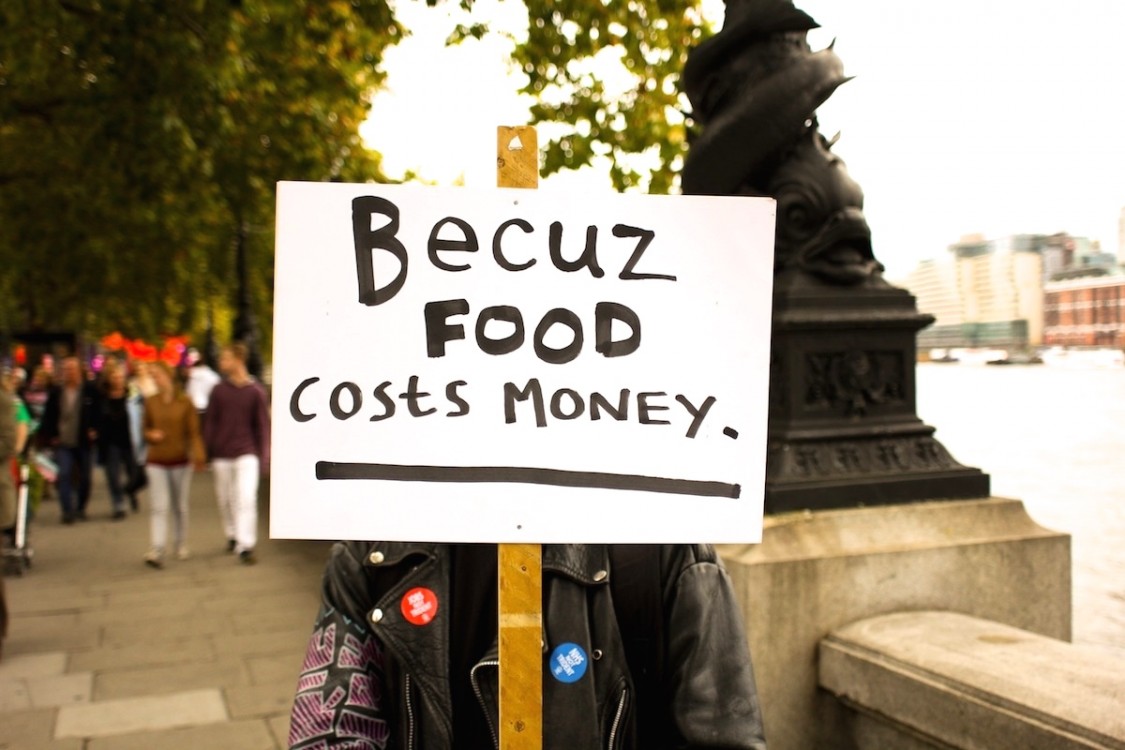
An acclaimed British columnist recently reproached the Green Party for not being a fundamental Left-wing party – comments that highlighted the Greens' and other "alternative" parties' growing prominence in British politics, but also raised the question of whether the Green Party is losing its socialist roots.
A recent pre-election research poll for the Guardian found support for the Green Party had risen to 9 percent, the highest it has been in two decades. An earlier poll by Lord Ashcroft put the Greens at 11 percent. By all counts, the popularity of the Green Party is surging.
The Greens, however, aren't the only alternative political force in Britain enjoying a rise in support ahead of May’s general elections.
The Guardian poll showed the country's three main parties – Conservatives, Labour and Liberal Democrats – are at an all-time low. Meanwhile, the UK Independence Party (UKIP), which dropped 3 percent in the poll, still stands at 11 percent, and the Scottish National Party (SNP) made gains.
As the Green Party moves beyond its former associations with vegetarianism and starts to be viewed as a serious election contender, the party’s ideologies and policies are being increasingly scrutinized, spurring the question: If party leader Natalie Bennett were to be elected, would Greens fall into the same systemic trap of corporate lobbying-as-politics?
Suzanne Moore provided some weight to the argument that the Greens are losing their Left-wing roots in her recent comments in the Guardian, which got significant attention.
Moore argued that if Green Party supporters are protesting on behalf of the left, then the “left has become a fairly meaningless term.” She referred to those who are saying they “might vote the Green party,” particularly voters who have long supported Labour, as being in a “political mid-life crisis.”
Something Hopeful, Something New, Something Big
Moore said she believes increased engagement in the Green party is a knock-on effect of the SNP in Scotland, which, according to her, “lost the battle but won the war.”
Similar to the recent elections in Greece, there is a kind of “displacement activity” occurring in the UK where people are looking for “something hopeful, something new, something big,” Moore stated. She said the Greens were like a strange coalition of “part eco-warrior, part middle-class do-gooders,” but that what's missing from the party is any real understanding of the economy.
The facts, though, don't seem to bear this out. The Green Party’s economic manifesto to implement a Citizen’s Income, giving every adult £72 a week regardless of income as a means of helping eliminate poverty, appears to be evidence that the party prioritizes anti-austerity and social democratic politicies.
Moore argued that a Citizen’s Income would leave the poor less well off. But, as Open Democracy highlights, the policy states that no one would receive less than they currently get from benefits.
“Moore obviously hasn’t bothered to read the policy,” wrote Open Democracy.
Nevertheless, following criticism over its cost, the Green Party has decided to remove the Citizen’s Income policy from its 2015 election manifesto. In a recent speech, Caroline Lucas, the Greens’ only Member of Parliament (MP), said the Citizen’s Income was a “longer term aspiration” rather than a red line for any post-election negotiations.
Lucas also issued a warning to Labour that the Greens wanted to bounce Labour back to adopting more Left-wing policies, such as the re-nationalization of the rail service, a traditional socialist policy. This would be a far cry from Moore’s assertion that the Greens' innate puritanism is “in itself conservative,” that the party is anything but progressive, or that its shift Left is meaningless.
Unlike UKIP, which has been a central focus of the media in recent years – with its leader Nigel Farage becoming an almost household name – the Green Party has been relatively ignored in the media.
Until recently. Thanks to overtaking both the Liberal Democrats and UKIP in several recent polls, more than doubling its membership base since the 2010 elections and announcing bold anti-austerity policies, the Greens have been suddenly propelled into the publicity spotlight.
In the wake of Syriza’s surge to power and its campaign against austerity in Greece, the UK Green Party stated its support for the new government in Athens.
“Greens share the view of the new [Greek] government that austerity is a failed model which has piled misery on the poorest while making the wealthiest even richer," a Green Party spokesperson said recently. "In the U.K. we are witnessing a Green surge, in no small part due to our anti-austerity agenda.”
3 WAYS TO SHOW YOUR SUPPORT
- Log in to post comments
















